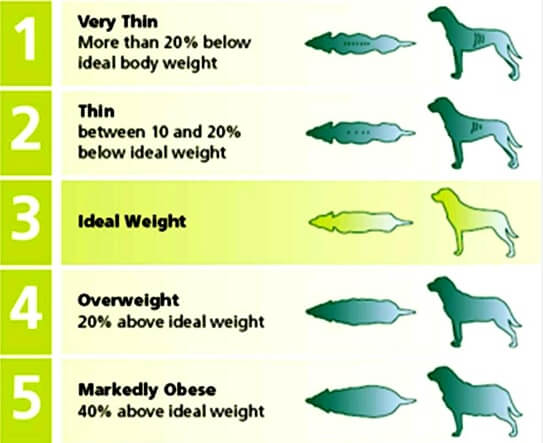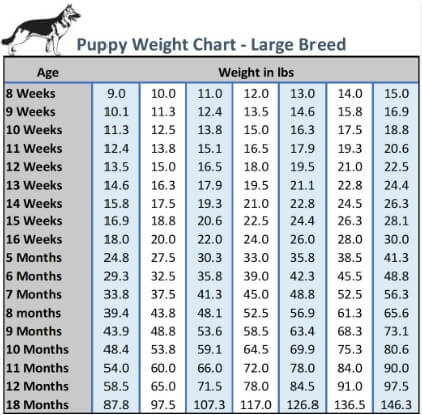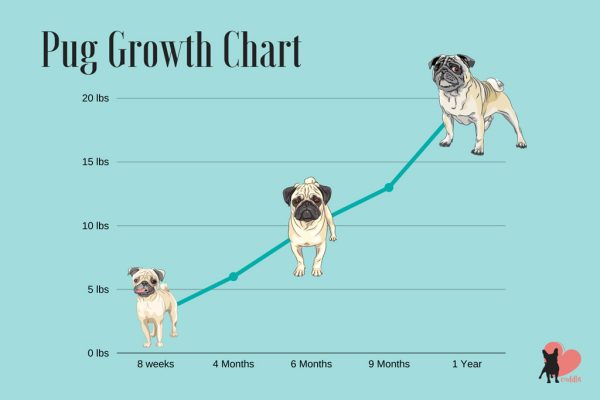Maintaining a healthy weight is crucial for the overall well-being of our beloved canine companions. In fact, did you know that nearly 56% of dogs in the United States are overweight or obese? This alarming statistic highlights the importance of understanding and managing a dogs weight effectively.
To assist pet owners in determining their dog’s ideal weight, a valuable tool known as the dog weight calculator has been developed. This calculator takes into account various factors such as breed, age, activity level, and body condition to provide an accurate assessment of a dog’s optimal weight range.
By utilizing the dog weight calculator, pet owners can ensure that their furry friends maintain a healthy weight throughout their lives. This not only enhances their quality of life but also reduces the risk of numerous weight-related health issues.
In this article, we will explore the significance of maintaining a healthy weight for dogs and delve into how to use the dog weight calculator effectively. Additionally, we will discuss the benefits of maintaining an optimal weight for dogs and provide tips on managing their weight appropriately.
Key Takeaways
- 56% of dogs in the United States are overweight or obese.
- Factors influencing weight gain in dogs include excessive calorie intake, lack of exercise, breed predisposition, age, and underlying medical conditions.
- Regular exercise, portion control, and a balanced diet are key factors in maintaining a healthy weight for dogs.
- The dog weight calculator estimates a dog’s weight based on breed-specific information, age, and gender.
Importance of Maintaining a Healthy Weight for Dogs
Maintaining a healthy weight for dogs is essential to their overall well-being and longevity. Factors influencing weight gain in dog health include excessive calorie intake, lack of exercise, breed predisposition, age, and underlying medical conditions.
Overfeeding and feeding table scraps can lead to obesity in dogs. Signs of an overweight dog may include difficulty breathing or moving, lethargy, decreased stamina, and the inability to feel the ribs or spine easily. It is important for dog owners to be aware of these signs and take necessary steps to prevent weight gain or address it promptly if it occurs.
Regular exercise, portion control, and a balanced diet are key factors in maintaining a healthy weight for dogs. By doing so, owners can ensure that their furry companions lead long and happy lives.
Factors that Impact a Dog’s Ideal Weight
Factors such as age, breed, and activity level significantly influence the ideal weight of canines.
Age plays a crucial role in determining a dog’s weight because puppies require different nutritional needs than adult dogs.

Breed also affects the ideal weight, as certain breeds like Yorkie Husky Mix have specific body structures that require different levels of fat and muscle mass.
Additionally, activity level is an important factor to consider when managing a dog’s weight. Active dogs may require more calories to maintain their energy levels, while less active dogs may need fewer calories to prevent excessive weight gain.
To maintain a healthy weight for dogs, it is essential to provide them with balanced nutrition and regular exercise. Feeding them appropriate portions based on their size and activity level will help prevent obesity or malnutrition.
Regular veterinary check-ups are also recommended for monitoring a dog’s weight and overall health status.
Understanding the Dog Weight Calculator
This paragraph will introduce a discussion on the subtopic of understanding the dog weight calculator.

The first key point is how the calculator works, which involves using specific algorithms and formulas to estimate a dog’s ideal weight based on various factors such as breed, age, and size.
The second key point is inputting accurate information regarding the breed, age, and size of the dog into the calculator to obtain reliable results.
Lastly, interpreting the results obtained from the calculator requires understanding that it provides an estimate rather than an exact measurement and considering other factors such as overall health and body condition.
How the Calculator Works
One key aspect of the dog weight calculator is its ability to accurately estimate a dog’s weight based on breed-specific information. The algorithm used in the calculator takes into account various factors such as breed, age, and gender to provide an accurate estimation. This algorithm has been developed using extensive research and data analysis to ensure its accuracy.

The accuracy of the calculator can be attributed to several factors:
- Breed-specific information: The calculator takes into consideration the unique characteristics and growth patterns of different breeds.
- Age: The calculator considers the age of the dog, as weight can vary significantly during different stages of development.
- Gender: Male and female dogs may have different growth rates and body compositions, which are taken into account by the calculator.
- Research-backed data: The algorithm is built upon comprehensive research and analysis of weight patterns in various dog breeds.
- Regular updates: The calculator is regularly updated with new data to improve its accuracy over time.
By incorporating these factors, the dog weight calculator provides a reliable estimation that can be useful for pet owners, veterinarians, and other professionals involved in caring for dogs.
Inputting Breed, Age, and Size Information
By providing the necessary breed, age, and size information, users can obtain a comprehensive estimation that will aid in their understanding of their canine companion’s physical development. This dog weight calculator takes into account various factors affecting dog weight, such as breed-specific growth patterns and metabolism.

Understanding a dog’s ideal weight is crucial for ensuring its overall health and well-being. Different breeds have different exercise needs, and maintaining an appropriate weight can help prevent obesity-related health issues.
Age is also an important factor to consider as puppies require more calories for growth compared to adult dogs. Additionally, the size of a dog plays a role in determining its nutritional requirements and exercise levels.
By inputting accurate information about their dog’s breed, age, and size, users can gain valuable insights into their pet’s weight management journey.
Interpreting the Results
Interpreting the results of the canine weight estimation tool is akin to deciphering a map that navigates pet owners through their furry companion’s journey towards optimal health and well-being. The numbers generated by the calculator offer valuable insights into a dog’s weight and can be used to assess if it falls within a healthy range.
By comparing the estimated weight with breed standards or consulting with veterinarians, pet owners can determine if their dog is underweight, overweight, or at an ideal weight. Additionally, knowing a dog’s weight is essential for proper medication dosages and nutrition planning.
Common misconceptions about dog weight can also be debunked through these results. For example, many people believe that heavier dogs are healthier, but this is not always true as excess weight can lead to various health problems such as arthritis or heart disease. Conversely, small-sized dogs may appear fragile but can still be in good health if they maintain an appropriate weight for their size.
Overall, interpreting the results of the dog weight calculator empowers pet owners to make informed decisions regarding their furry friend’s overall well-being and strive towards achieving optimal health outcomes.
Benefits of Maintaining a Healthy Weight for Dogs
Maintaining a healthy weight for dogs has numerous benefits that contribute to their overall well-being and longevity.
Firstly, it improves their overall health and extends their lifespan by reducing the risk of chronic diseases such as diabetes, heart disease, and arthritis.
Additionally, maintaining a healthy weight enhances their mobility and joint health, allowing them to move more freely without discomfort or pain.
Improved Overall Health and Longevity
Enhancing the overall health and longevity of dogs is crucial for their well-being, as it promotes a higher quality of life and reduces the risk of various health issues.
One key aspect to achieving this is by improving their nutritional intake. Providing dogs with a balanced diet that meets their specific needs can prevent obesity and related problems such as diabetes, joint issues, and heart disease.
Additionally, regular exercise is essential for maintaining a healthy weight in dogs. Exercise recommendations vary depending on factors such as age, breed, and size but generally involve daily walks or playtime that helps burn calories and keeps muscles strong.
By incorporating these practices into a dog’s lifestyle, owners can significantly improve their pet’s overall health and increase their lifespan, ensuring they can enjoy each other’s company for years to come.
Reduced Risk of Chronic Diseases
In addition to improving overall health and longevity, maintaining a healthy weight in dogs can also significantly reduce the risk of chronic diseases.
Obesity in dogs has become a growing concern, with rates steadily increasing in recent years. However, by implementing a dog weight calculator and actively monitoring their weight, pet owners can play an essential role in reducing obesity rates among their furry companions.
The impact of maintaining an appropriate weight extends beyond physical well-being; it also greatly affects the quality of life for dogs. By preventing excessive weight gain, dogs are less likely to develop conditions such as diabetes, heart disease, and joint problems.
Through careful attention to their diet and exercise regimen, pet owners can ensure that their canine friends enjoy a healthier and more fulfilling life.
Enhanced Mobility and Joint Health
By achieving a balanced physique, dogs can experience the freedom of effortless movement, akin to a graceful dance on a moonlit path. Improved mobility and joint health are key benefits of maintaining an optimal weight for dogs. When dogs carry excess weight, it puts strain on their joints, leading to discomfort and reduced mobility.
However, by keeping their weight in check, dogs can enjoy enhanced agility and flexibility. Regular exercise also helps strengthen muscles around the joints, providing additional support and reducing the risk of injury. To emphasize this point further, consider the following table:
| Benefits of Maintaining Optimal Weight for Dogs |
|---|
| Improved Mobility |
| Enhanced Flexibility |
| Reduced Joint Strain |
| Increased Agility |
| Lower Risk of Injury |
For dog owners who desire to serve their furry companions well, ensuring proper weight management is crucial for promoting improved mobility and joint health.
Tips for Managing a Dog’s Weight
Managing a dog’s weight can be challenging, but implementing proper portion control and regular exercise is crucial for ensuring their overall health and well-being.
Dog weight loss requires a balanced approach that includes both diet management and physical activity. It is essential to provide dogs with appropriate portion sizes that meet their nutritional needs while not exceeding their daily caloric requirements.
Exercise for dogs plays a vital role in maintaining a healthy weight as it helps burn calories, build muscle mass, and improve cardiovascular fitness. Engaging in activities such as walking, running, or playing fetch can contribute to weight management.
Additionally, incorporating mental stimulation through interactive toys or puzzle games can help prevent overeating due to boredom. By adhering to these practices, owners can effectively manage their dog’s weight and promote optimal health outcomes.
Common Mistakes to Avoid in Dog Weight Management
One potential error to avoid in the management of a dog’s weight is neglecting to accurately measure and track food portions, which can lead to overfeeding and hinder weight loss efforts. Accurate measurement ensures that the dog receives the appropriate amount of food for their size and activity level.
Additionally, it is important to avoid relying solely on commercial dog food packaging recommendations, as they may not always be accurate or tailored to your specific dog’s needs.
Other common mistakes in dog weight management include:
- Feeding table scraps or excessive treats: These can add unnecessary calories and contribute to weight gain.
- Inconsistent exercise routine: Regular physical activity is crucial for maintaining a healthy weight in dogs.
- Ignoring veterinary guidance: Consulting with a veterinarian can provide valuable insights into effective strategies for dog weight loss.
By avoiding these mistakes and implementing effective strategies for dog weight loss, such as portion control, regular exercise, and professional guidance, pet owners can help their dogs achieve and maintain a healthy weight.
Breed-Specific Considerations for Dog Weight
This discussion will explore breed-specific considerations for dog weight. It will focus on breeds prone to obesity, breeds with special dietary needs, and breeds with high energy levels. Understanding these factors is crucial for effective weight management in dogs. Different breeds may have varying predispositions and requirements. By addressing these breed-specific considerations, dog owners can tailor their approach to weight management and ensure the overall health and well-being of their pets.
Breeds Prone to Obesity
Breeds prone to obesity require special attention in monitoring their food intake and exercise levels. Certain breeds, such as Labrador Retrievers, Beagles, and Cavalier King Charles Spaniels, have a genetic predisposition towards overeating. This can lead to weight gain and subsequent health issues if not properly managed.
Obesity has been shown to significantly impact a dog’s lifespan, with overweight dogs having a shorter life expectancy compared to their lean counterparts. It is crucial for owners of these breeds to be vigilant in ensuring their pets maintain a healthy weight through portion control and regular exercise.
Additionally, providing mental stimulation through interactive toys or training activities can help prevent boredom-induced overeating. By taking proactive measures, owners can improve the overall health and well-being of their beloved pets and extend their lifespan.
Breeds with Special Dietary Needs
Certain breeds of dogs have unique dietary needs that must be considered for their optimal health and well-being. Breeds with allergies have specific requirements as they may be allergic to common ingredients like wheat, corn, or soy found in commercial dog food. Thus, hypoallergenic dog food without these allergens is crucial for them.
Additionally, breeds with sensitive stomachs need a diet that is easily digestible and gentle on their digestive system by avoiding fatty or artificially added foods. Instead, choosing dog food formulas designed for sensitive stomachs containing easily digestible proteins and limited ingredients would benefit them greatly.
By catering to these specific dietary needs diligently, pet owners can contribute towards maintaining the overall health and well-being of their cherished companions.
Breeds with High Energy Levels
Energetic breeds of dogs are known for their high activity levels and require a diet that supports their active lifestyle. It is important to provide them with the right amount of nutrients to sustain their energy levels and promote overall well-being.
Breeds with high activity levels have specific exercise requirements that need to be met in order to keep them physically and mentally stimulated. Here are five key considerations when it comes to meeting the exercise needs of high-energy breeds:
- Daily exercise: These breeds typically require at least 60 minutes of vigorous exercise each day.
- Mental stimulation: Engaging their minds through interactive toys, puzzle games, or training sessions can help tire them out.
- Off-leash play: Providing opportunities for off-leash activities such as running in a secure area can help burn off excess energy.
- Socialization: Regular interactions with other dogs can help fulfill their social needs and prevent boredom.
- Variety of activities: Mixing up activities like hiking, jogging, agility training, and fetch can prevent monotony and keep them engaged.
By understanding the exercise requirements for high-energy breeds, dog owners can ensure they are providing an environment that promotes optimal health and well-being.
Weight-Related Health Issues in Dogs
Weight-related health issues in dogs can be like heavy chains that weigh them down and limit their ability to live a healthy, active life. It is important for dog owners to recognize the impact that excessive weight can have on their pet’s overall well-being. Dogs that are overweight or obese are at higher risk for various health problems, including joint pain, diabetes, heart disease, and respiratory issues.
Managing a dog’s weight requires a combination of proper nutrition and regular exercise. Providing a balanced diet with appropriate portion sizes and avoiding excessive treats can help prevent weight gain. Regular physical activity, such as daily walks or playtime, is essential for maintaining a healthy weight and promoting overall fitness. Dog owners should consult with their veterinarian for specific recommendations based on their dog’s breed, age, and individual needs.
| Health Issue | Symptoms | Prevention |
|---|---|---|
| Joint Pain | Lameness or limping; reluctance to move or exercise | Maintaining a healthy weight; low-impact exercise |
| Diabetes | Increased thirst; frequent urination; sudden weight loss or gain | Balanced diet; portion control |
| Heart Disease | Coughing; difficulty breathing; fatigue | Regular exercise; annual check-ups |
| Respiratory Issues | Wheezing; coughing; shortness of breath | Avoid exposure to environmental pollutants; regular veterinary care |
Keeping a dog at a healthy weight is crucial for preventing weight-related health issues. By following proper nutrition guidelines and providing regular exercise opportunities, pet owners can help their dogs lead happy and active lives while reducing the risk of developing these common ailments associated with excess weight.
Consulting with a Veterinarian
When seeking guidance on maintaining a dog’s overall health and well-being, it is essential to consult with a veterinarian who can provide expert advice based on the specific needs of the individual animal. Veterinarians are trained professionals who possess extensive knowledge regarding various weight-related health issues in dogs. They can offer valuable insights into effective weight loss strategies tailored to meet the unique requirements of each dog.
By conducting a thorough examination and considering factors such as breed, age, activity level, and underlying medical conditions, veterinarians can develop personalized diet plans and exercise routines to promote healthy weight management in dogs. Additionally, they can provide guidance on portion control, calorie intake, and recommend appropriate dietary modifications or specialized weight-loss foods if necessary.
Consulting with a veterinarian is crucial for owners looking to ensure their dogs’ optimal well-being by implementing successful weight loss strategies under professional supervision.
Resources for Dog Weight Management
One valuable resource for managing a dog’s weight is the MyFitnessPal app, which allows owners to track their pet’s food intake and monitor calorie consumption. This app provides a convenient way for dog owners to stay informed about their pet’s dietary habits and make necessary adjustments to promote weight management.
Additionally, there are numerous online communities and forums dedicated to dog weight tracking and weight loss strategies. These platforms offer support, advice, and guidance from experienced individuals who have successfully managed their own dogs’ weight.
Furthermore, many veterinary clinics and animal hospitals provide resources such as educational materials, workshops, and consultations that focus on dog weight management. By utilizing these resources, dog owners can access valuable information and tools to help them effectively manage their pets’ weight in a healthy and sustainable manner.
See Also:
- CARNA4 Hand Crafted Dog Food Review [2023]
- Zignature Zssential Limited Ingredient Formula Dry Dog Food Review [2023]
- Nature’s Recipe Dry Dog Food, Grain Free Chicken, Sweet Potato & Pumpkin Recipe Food Review [2023]
Conclusion
In conclusion, maintaining a healthy weight is crucial for the overall well-being of dogs, especially given the concerning prevalence of overweight or obese dogs in the United States. The dog weight calculator serves as a valuable tool to help pet owners determine their dog’s ideal weight based on factors such as breed, age, and activity level.
By using this calculator and understanding the significance of weight management, pet owners can enhance their furry companions’ quality of life and reduce the risk of weight-related health issues. Proper nutrition, portion control, regular exercise, and consulting with a veterinarian are essential elements in achieving and maintaining a healthy weight for dogs.
If you can’t find the right dog for you to adopt locally, please consider adopting a dog from Bone Voyage Dog Rescue. We’ll fly with your dog to you.
Frequently Asked Questions
How often should I use the dog weight calculator to determine my dog’s ideal weight?
Determining a dog’s ideal weight using a reliable dog weight calculator is crucial for effective dog weight management. Regularly utilizing this tool helps ensure that the importance of exercise remains prioritized, promoting the overall well-being of your furry friend.
Are there any specific dietary requirements for dogs with weight-related health issues?
Dogs with weight-related health issues require specific dietary recommendations. These may include portion control, reduced calorie intake, and the incorporation of high-quality, low-fat foods. Following these guidelines can help manage their weight and improve overall health.
Can a dog’s ideal weight change as they age?
The ideal weight of a dog can indeed change as they age due to various factors such as metabolism, activity level, and overall health. Fluctuations in dog weight are influenced by these factors.
What are some signs that my dog may be overweight or underweight?
Signs of dog weight management issues include visible ribs or excessive fat, difficulty walking or breathing, and a lack of energy. Regular exercise is important for maintaining a healthy weight and overall well-being in dogs.
Can I use the dog weight calculator for different dog breeds or is it breed-specific?
The applicability of a dog weight calculator varies across different dog breeds. Each breed has unique characteristics and body compositions, making it important to consider breed-specific factors when using such a tool.
